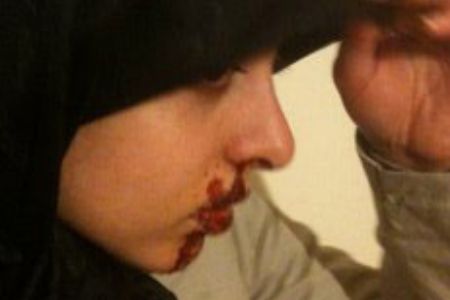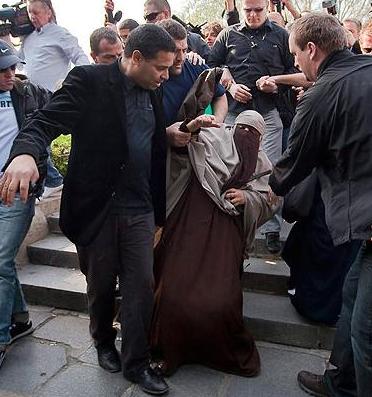The prospect of any attempt to ban the Islamic full veil in public in Britain has been firmly ruled out by Theresa May, the Home Secretary. Ministers believe there is little pressure, either politically or among the public, for the UK to follow the French lead and outlaw the use of face-covering veils such as the niqab or burka.
Although David Cameron has warned of “different cultures” being encouraged by “state multiculturalism” to live separate lives, the Government is adamant that to impose a ban on the veil would run contrary to British instincts.
Calls for a ban have been limited so far to one Tory MP, Philip Hollobone, and the UK Independence Party. Mr Hollobone attempted last year to champion a Commons bill outlawing face coverings, but received no public declarations of support from any other MP.
The Home Office said yesterday: “It is not for government to say what people can and cannot wear. Such a proscriptive approach would be out of keeping with our nation’s longstanding record of tolerance. Accordingly we do not support a ban on wearing the burka.”
Baroness Warsi, the first woman Muslim Cabinet minister, has also defended the right of women to choose to wear a face veil.
Independent, 11 April 2011
This is not to the taste of Leo McKinstry who devotes his Daily Express column to denouncing Britain’s refusal to ban the veil:
Our British political elite constantly boasts of its tolerance and enthusiasm for cultural diversity.
Yet often this supposedly liberal attitude is nothing more than cowardice in the face of militant Islam. Terrified of accusations of racism, paralysed by the fashionable narrative of ethnic minority victimhood, our civic leaders simply do not have the backbone to uphold the values of Western civilisation against the onward march of Muslim fundamentalism.
This institutionalised feebleness, masquerading as enlightenment, is in graphic contrast to the much more robust outlook in France. Today a new French law comes into force banning people from covering their faces in public. In effect both the niqab, which conceals the face below the eyes, and the full burka, covering the body head to toe, will be prohibited outside home or mosque.
Some 2,000 women in France wear the burka and they will be heavily fined if they refuse to comply. The ban on the burka has the support of the French Parliament and people, determined to protect Gallic culture from oppressive alien customs. Many European nations are moving in this direction. Belgium has a ban while it’s under discussion in Spain and Italy.
But in Britain there is no chance our establishment will display such courage. The self-destructive dogma of diversity is too strong in all three major parties. Reflecting the supine outlook of Westminster, dripping wet Immigration Minister Damien Green said recently that a ban on the burka would be “unBritish” because it is “at odds with our tolerant and mutually respectful society”.
See also ENGAGE who pose “a question for the new editor of the Daily Express: why not invite a woman who wears the burqa or niqab to respond to McKinstry’s claims of her, and those like her, being subjected to a ‘barbaric tradition’ with its ‘cruel subjugation of women, literally incarcerating them within mobile prisons’?”
 An Iranian Muslim girl has reportedly come under attack in Britain after refusing to remove her hijab amid a new wave of Islamophobia in Western countries.
An Iranian Muslim girl has reportedly come under attack in Britain after refusing to remove her hijab amid a new wave of Islamophobia in Western countries.
